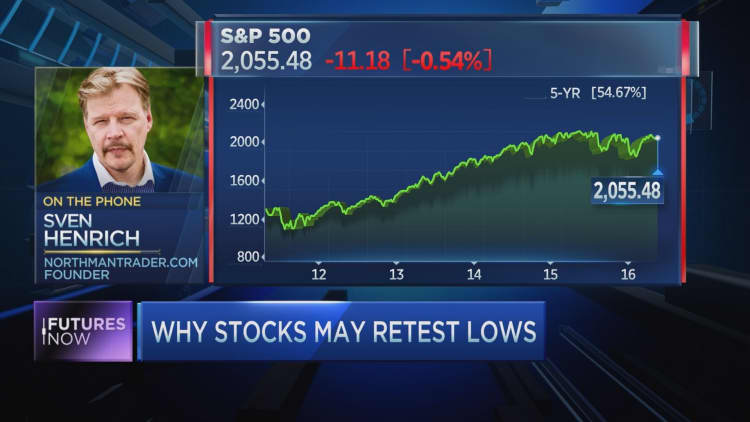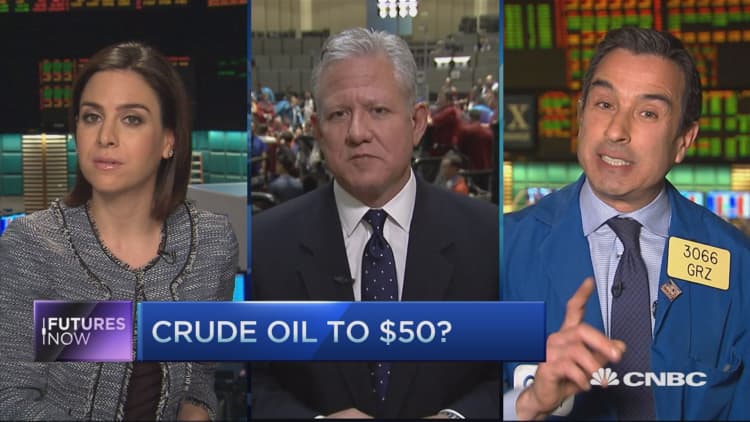



A closely followed market watcher has spotted a disturbing pattern that could bring the S&P 500 down to a level not seen since June 2013.
"The technical target that I see would be 1,573 on the ," NorthmanTrader.com founder Sven Henrich said Tuesday on CNBC's "Futures Now." He believes it could happen in a matter of months.
While Henrich doesn't manage any money, his chart work on NorthmanTrader has garnered a significant amount of attention in the online world. His latest take on stocks comes as nearly all of Monday's big market gains were wiped out Tuesday, when the index closed at 2,047.21.
The S&P 500 must stay above the 2,025 to 2,030 range in order to keep the S&P 500 from falling by nearly 500 points from current levels, Henrich said.
"If we break below this level by the end of May, then stocks may actually indeed retest lows or break lower because the technical targets on a break like that would be significantly lower from here," he said.
Henrich's bear case revolves around earnings declining by 7.1 percent in the first quarter, even as most central banks continue to pursue stimulative policies.
He points out that official GAAP earnings have been declining since 2015 — thus making stocks very expensive. He calls this a "technical red flag."
The S&P 500 is at a structurally high risk of repeating a major topping pattern consistent with the year 2000 and 2007, according to Henrich.
On the other hand, if this scenario doesn't play out, he believes a bull case could emerge.
"If GAAP earnings can reverse the trend and reverse higher, then markets can break to sustained new highs with technical targets of 2,334 and 2,458," Henrich told CNBC.



